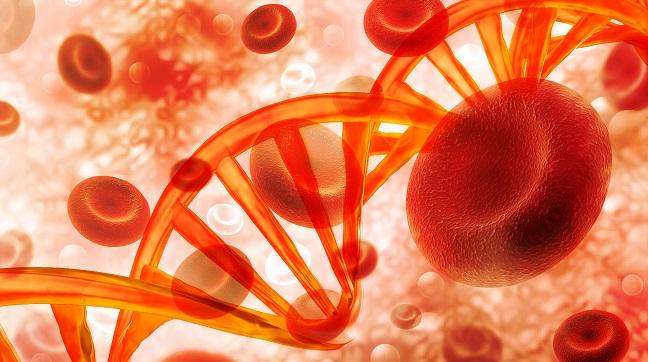Genetic Study Hints at Role of Lipids in AAA Risk
Lipid-modifying drugs, like statins, PCSK9 inhibitors, and CETP inhibitors, could be repurposed for testing in AAA, say researchers.

Abnormal lipid levels may contribute to the development of abdominal aortic aneurysm (AAA), according to results from a new mendelian randomization analysis, with investigators reporting that genetically determined elevations in LDL cholesterol and triglyceride levels increase AAA risk.
In contrast, genetically determined elevations in HDL cholesterol appear to be protective, with significantly lower risk of AAA in patients with high levels.
“Our genetic analysis lends credibility to the theory that circulating blood lipids have a cause-and-effect role in the development of AAA,” co-principal investigator Michael Holmes, MD, PhD (University of Oxford, England), told TCTMD.
“While these harmful effects of LDL cholesterol and triglycerides fit with our current understanding of the etiology of atherosclerosis, our findings of a protective role of HDL cholesterol in AAA come as a surprise,” he said. “Decades of research in heart disease has led to the prevailing opinion that HDL cholesterol is unlikely to be causally implicated in the etiology of coronary heart disease.” The results suggest that some disease processes leading to coronary heart disease and AAA overlap, while others are discrete, added Holmes.
The study, with co-principal investigator Seamus Harrison, PhD (University of Cambridge, England), was published online November 29, 2017, ahead of print in JAMA Cardiology.
Similar Risk Factors as CVD, but With Different Impact
To TCTMD, Holmes said the risk factors for AAA and coronary heart disease are similar, but that the “strength of the association” does differ with respect to some of the common risk factors.
For one, smoking is associated with a higher risk of AAA than it is for coronary heart disease. Prior to this study, the evidence linking LDL cholesterol with AAA risk has been mixed, mainly because there aren’t the same large-scale, prospective, observational studies in AAA as there are in heart disease, said Holmes, who works in the University of Oxford’s Medical Research Council Population Health Research Unit.
“This means that so far, we've had to rely on small studies that frequently use a case-control study design,” he said. “Such study designs can be problematic, as the reliability of the associations can be hampered by bias and reverse causality. For example, a prior study suggested that statin use may actually increase risk of AAA, but as our genetic data illustrate, statin therapy is likely to lower the risk of AAA.”
In the study, which included 4,914 AAA cases and 48,002 healthy controls from five genome-wide association studies, the researchers investigated the association of genetic risk scores for LDL cholesterol using 75 single nucleotide polymorphisms (SNPs) known to be associated with LDL in the Global Lipids Genetic Consortium. A similar approach was used to devise the genetic risk score for HDL cholesterol and triglyceride levels, with those scores encompassing 84 and 50 SNPs, respectively.
Each standard deviation (SD) increase in LDL cholesterol based on the risk score was associated with an increased risk of AAA (OR 1.66; 95% CI 1.41-1.96). A one-SD increase in triglycerides based on the risk score was associated with a similar risk (1.69; 95% CI 1.38-2.07). In contrast, a one SD-increase in HDL cholesterol was associated with a significant reduction in AAA risk (OR 0.67; 95% CI 0.55-0.82)
These results were confirmed in a multivariable mendelian randomization analysis and other mendelian randomization methods.
Additionally, SNPs in genes that encode for various lipid targets, such as the HMGCR, PCSK9, and CETP genes, were associated with a lower risk of AAA.
Regarding the drug targets, an allele of CETP associated with increased HDL cholesterol levels reduced the risk of AAA by 11%. An allele of HMGCR linked with lower LDL cholesterol levels was associated with a 7% reduction in AAA risk, while an allele of PCSK9, also linked with lower LDL, was associated with a 6% lower risk of AAA.
Holmes said the genetic findings suggest that lipid-modifying drugs, including statins, PCSK9 inhibitors, and the beleaguered CETP inhibitors, might help reduce the risk of AAA.
“This might provide an opportunity for drug repurposing that could lead to a reduction in risk of AAA,” said Holmes in reference to the various lipid-modifying therapies. “Whether these drugs would help slow the progression of AAA is another question, though, which our findings can't speak to. Certainly, our findings could be used as motivation to study the effects of these drugs on slowing the progression of AAA in patients that are identified through screening programs as having disease.”
Recently, Merck said they would not pursue regulatory approval of their CETP inhibitor anacetrapib even though the drug was shown to modestly reduce the risk of CVD events when added to statin therapy in high-risk patients. The CETP inhibitors raise HDL cholesterol levels, although many suspected the modest benefit in the REVEAL trial with anacetrapib was the result of the drug concomitantly lowering LDL cholesterol levels. Other CETP inhibitors, including dalcetrapib and evacetrapib, have been shown to raise HDL levels but to have no impact on CVD events.
Michael O’Riordan is the Managing Editor for TCTMD. He completed his undergraduate degrees at Queen’s University in Kingston, ON, and…
Read Full BioSources
Harrison SC, Holmes MV, Burgess S, et al. Genetic association of lipids and lipid drug targets with abdominal aortic aneurysm: a meta-analysis. JAMA Cardiol. 2017;Epub ahead of print.
Disclosures
- Holmes and Harrison report no relevant conflicts of interest.


Comments